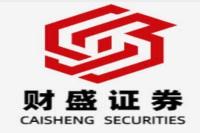Hong Kong Market Rollercoaster: Navigating the Volatility of the Hang Seng and Tech Indices (SEO Meta Description: Hang Seng Index, volatility, Hong Kong market, tech stocks, China, investment, financial markets, market analysis, trading strategies)
Imagine this: You're glued to your screen, watching the Hang Seng Index plummet. Your heart’s doing the same frantic dance as the numbers flash across the display, a dizzying descent that feels like freefall. Then, just as quickly, the tide turns. A surge of buying pressure pushes the index back up, leaving you breathless and wondering, "What just happened?" This, my friends, is the reality of investing in the Hong Kong market, a landscape as beautiful and unpredictable as the city itself. This isn't just about numbers on a screen; it's about understanding the intricate forces that shape the market, from geopolitical shifts and regulatory changes to the ebb and flow of investor sentiment. This detailed analysis delves into the recent market fluctuations, offering insights gleaned from years of experience navigating the complex currents of the Hang Seng and its tech-heavy counterpart. We'll explore the factors driving volatility, unpack the significance of events like the October 3rd market swing, and equip you with the knowledge to make more informed decisions. Prepare to unravel the mysteries behind the headline numbers and gain a deeper understanding of this dynamic and rewarding (and sometimes nerve-wracking!) market. We'll explore the recent market turmoil, examining the role of mainland Chinese investors, the impact of technological advancements, and the crucial role played by specific sectors like finance. Buckle up, because we're taking a deep dive into the heart of the Hong Kong financial world! Forget dry statistics; we're building a narrative that will not only inform you but also empower you to navigate this exciting, albeit occasionally challenging, market with confidence.
Hang Seng Index Volatility: Unpacking the October 3rd Dip and Subsequent Rebound
The October 3rd market activity in Hong Kong serves as a prime example of the volatility characterizing the Hang Seng Index (HSI) and the Hang Seng Tech Index. The initial plunge, exceeding 4% for the HSI and over 7% for the tech index, sent shockwaves through the market. However, the dramatic recovery, culminating in the HSI ending the day virtually unchanged, highlighted the market’s unpredictable nature. This wasn't some isolated incident; it’s a pattern reflecting the interplay of numerous factors.
Factors Contributing to Volatility:
-
Geopolitical Uncertainty: Global events, from trade tensions to geopolitical instability, significantly impact investor confidence. News from the mainland often reverberates through the Hong Kong market, influencing investor sentiment and driving short-term fluctuations. Think of it as a ripple effect – a global event creates a ripple that washes across the Hong Kong shores.
-
Regulatory Changes: Regulatory shifts in both Hong Kong and mainland China can create uncertainty, impacting specific sectors and triggering market corrections. Companies operating under evolving regulatory frameworks often face increased scrutiny, leading to temporary volatility.
-
Investor Sentiment: Market psychology plays a crucial role. Fear and greed, the twin engines of market movement, can amplify both upward and downward trends. A sudden shift in investor confidence can lead to rapid price swings, as we witnessed on October 3rd.
-
Sector-Specific Dynamics: The performance of individual sectors, like technology and finance, directly influences the overall index. The strong performance of certain financial stocks, like the impressive 26% surge in Huatai Securities (华泰证券) on that day, showcased the sector's resilience and ability to counterbalance negative trends in other areas.
The Role of Mainland Chinese Investors:
Mainland investors, often described as the "Northbound" flow, exert considerable influence on the Hong Kong market. Their investment decisions, driven by various factors including economic growth prospects and regulatory changes in China, can significantly affect market direction. A sudden shift in their investment strategy can trigger dramatic swings, underscoring their pivotal role in market dynamics. Understanding this "Northbound" influence is crucial for successful navigation of the Hong Kong market.
Technological Advancements and Their Impact:
The technology sector, heavily represented in the Hang Seng Tech Index, is particularly susceptible to volatility. Rapid technological advancements, evolving consumer preferences, and intense competition create a highly dynamic environment. Positive news about technological breakthroughs can boost investor confidence, while negative news, such as regulatory crackdowns or disappointing earnings reports, can swiftly trigger sell-offs.
Analyzing the October 3rd Event: A Case Study
The October 3rd volatility provides a valuable case study. While the initial drop was alarming, the subsequent recovery suggests a degree of market resilience. The rebound was partly fueled by the strong performance of certain financial stocks, highlighting the importance of sector diversification and the potential for counterbalancing forces within the market. However, the swiftness of the swing underscores the need for a robust trading strategy and a clear understanding of risk management.
Developing a Robust Investment Strategy: Tips and Strategies
Navigating the volatile Hong Kong market requires a well-defined strategy. Here are some key considerations:
-
Diversification: Spread your investments across different sectors and asset classes to mitigate risk. Don't put all your eggs in one basket, as the saying goes.
-
Fundamental Analysis: Thoroughly research companies before investing, focusing on their financial health, growth prospects, and management team. Don't rely solely on market sentiment; delve deeper into the fundamentals.
-
Technical Analysis: Employ technical indicators and chart patterns to identify potential entry and exit points. This complements fundamental analysis, providing a different perspective on market trends.
-
Risk Management: Establish stop-loss orders to limit potential losses and protect your capital. Risk management is paramount in a volatile market.
-
Long-Term Perspective: Focus on long-term growth rather than short-term gains. Short-term fluctuations are inevitable; maintaining a long-term perspective can help you weather the storms.
Frequently Asked Questions (FAQs)
Q1: Is investing in the Hong Kong market risky?
A1: Yes, investing in any market carries risk, and the Hong Kong market is no exception. Its volatility requires a well-defined strategy and a clear understanding of risk management.
Q2: How can I mitigate the risk of investing in the Hang Seng Index?
A2: Diversification is key. Spread your investments across various sectors, asset classes, and geographies to reduce your exposure to any single risk factor.
Q3: What are the major factors influencing the Hang Seng Tech Index?
A3: Global technological trends, regulatory changes in China and Hong Kong, and investor sentiment related to the tech sector are significant influences.
Q4: Are mainland Chinese investors a major factor in Hong Kong's market volatility?
A4: Absolutely. Their investment decisions, often influenced by economic growth prospects and regulatory changes in China, significantly impact the Hong Kong market's direction.
Q5: Should I invest in individual stocks or ETFs focused on the Hang Seng?
A5: Both options offer different risk-reward profiles. Individual stocks offer higher potential returns but also greater risk. ETFs provide diversification and lower risk but potentially lower returns. Your choice depends on your risk tolerance and investment goals.
Q6: Where can I find reliable information about the Hang Seng Index?
A6: Reputable financial news sources, stock market websites, and financial analysis platforms provide reliable data and insights into the Hang Seng Index and related markets. Always verify information from multiple sources.
Conclusion
The Hong Kong market, while offering significant investment opportunities, is undeniably volatile. Understanding the intricate interplay of geopolitical events, regulatory changes, investor sentiment, and sector-specific dynamics is crucial for navigating this dynamic landscape. By employing a well-defined investment strategy, including diversification, thorough research, and robust risk management, investors can enhance their chances of success. Remember, the key to navigating the market's ups and downs lies in informed decision-making and a long-term perspective. Don't be intimidated by the volatility; embrace the challenge and learn to harness the market's potential for growth. The Hong Kong market is a thrilling ride, and with the right knowledge and approach, you can enjoy the journey!



